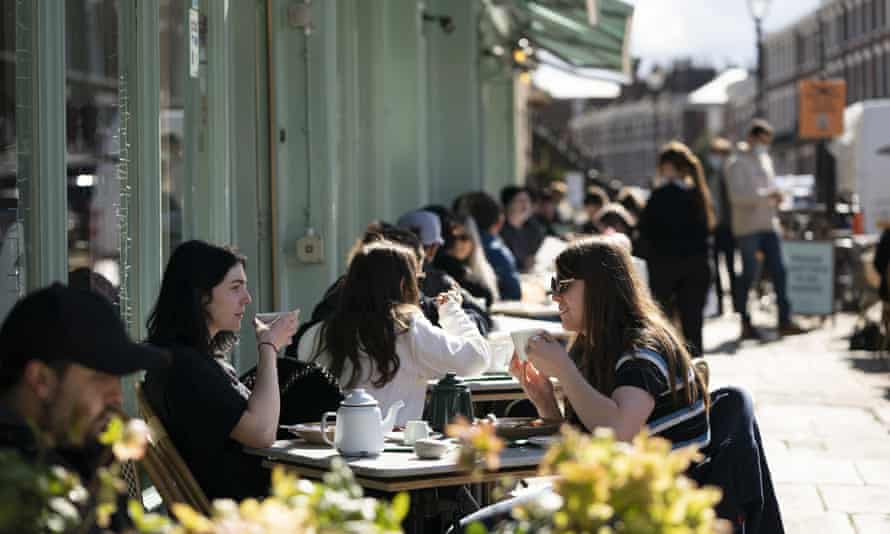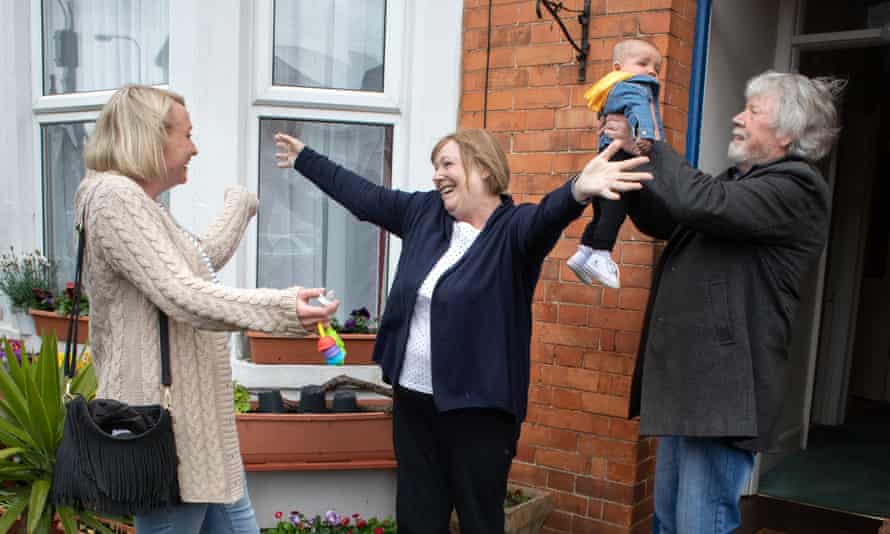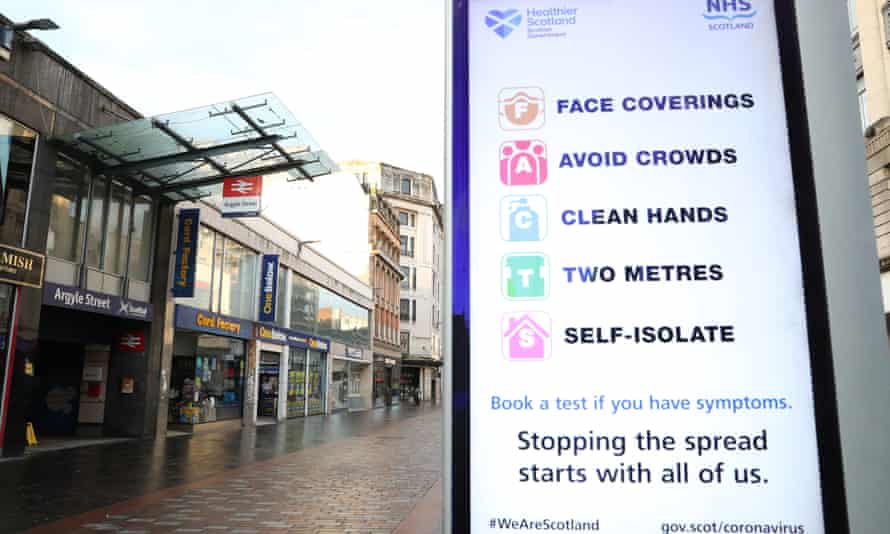Coronavirus restrictions will be eased further on Monday in England, Wales and most of Scotland. Northern Ireland will review its measures on Thursday, with a view to lifting more restrictions on 24 May.
The next phase of relaxation comes despite the spread of the coronavirus variant first detected in India, though Boris Johnson warned on Friday that the variant could make it “more difficult” to achieve the final step in England’s roadmap in June.
Here’s a look at how the changes coming into force on Monday.
England
The rules on gatherings are changing to allow bigger groups and indoor household mixing. The government is also reviewing its social distancing guidance to emphasise “personal responsibility rather than rules”.
-
Groups of up to six people or two households can meet indoors and overnight visits are allowed.
-
People can meet in groups of up to 30 outdoors.
-
Up to 30 people can attend weddings, receptions wakes and other life events.
-
The number of people who can attend a funeral is determined by how many people the venue can accommodate with social distancing.
-
Care home residents can have up to five named visitors (two at a time), provided visitors test negative.
Restrictions on leisure, hospitality and entertainment are also being relaxed in a long-awaited development for pubs, restaurants and cinemas among others.

-
Pubs, bars, cafes and restaurants can serve customers indoors.
-
Museums, galleries and cinemas can reopen, as can bowling alleys and arcades.
-
Theatres, concert halls and sports stadiums can reopen.
-
Organised adult sports, includes gym classes, can begin again.
-
Steam rooms and saunas can reopen.
-
All holiday accommodation, including hotels and B&Bs, can open.
The rules regarding international travel change on 17 May as the government scraps the legal restriction on going abroad.
Travellers no longer require a permitted reason to fly internationally, and people returning to England will need to follow restrictions outlined in the traffic light system, depending on which country they have come from.
Wales
The rules are easing to allow hospitality venues to serve customers indoors, but restrictions on household mixing in private homes remain in place. Indoor socialising in homes remains limited to extended households, meaning two households can mix with each other (and no one else).

-
Indoor hospitality can reopen, with venues allowed to seat six people from up to six households (not including children under 11) together at a table
-
Six people from six households can meet outside
-
All holiday accommodation can fully reopen
-
Entertainment venues, such as cinemas, bingo halls, bowling alleys, indoor-play areas and theatres can begin welcoming back customers
-
Indoor visitor attractions, including museums and galleries, can reopen
-
Up to 30 people can attend indoor wedding receptions and wakes, while the cap is raised to 50 for organised outdoor events
-
International travel can resume, in line with the traffic light system used by England and Scotland – but the government continues to advise against non-essential foreign travel.
Scotland
Unlike England and Wales, Scotland has continued to use a tiered system, meaning different levels of restrictions are imposed depending on local infection levels.
With the exceptions of Moray and Glasgow, which will remain in level three, mainland Scotland is moving to level two restrictions on 17 May. Most Scottish islands will be in level one.

For most of Scotland in level two, restrictions will change to mean the following:
-
Up to six people from no more than three households can meet indoors in a private home or hospitality venue. Children under 12 are not included in the number making up a group, but they are included in the number of households.
-
Overnight visits are allowed
-
Up to eight people from eight households can meet outdoors
-
Hospitality venues can serve alcohol indoors until 10.30pm
-
Entertainment venues such as cinemas, theatres and bingo halls may reopen
-
Outdoor adult contact sport and indoor group exercise can restart
-
Up to 50 people can attend weddings and funerals
-
International travel to be allowed, in line with rules in England
Orkney, Shetland, Na h-Eileanan Siar, all islands in Highland (except Skye) and the Argyll and Bute islands of Coll, Colonsay, Erraid, Gometra, Iona, Islay, Jura, Mull, Oronsay, Tiree and Ulva will move to level one.
In level one, up to eight people from three households can meet in an indoor public place, while 12 from 12 households can meet outdoors. The limit for weddings and funerals rises to 100 attendees.
As Glasgow and Moray remain in level three, there is no change to restrictions in these areas.
This content first appear on the guardian
